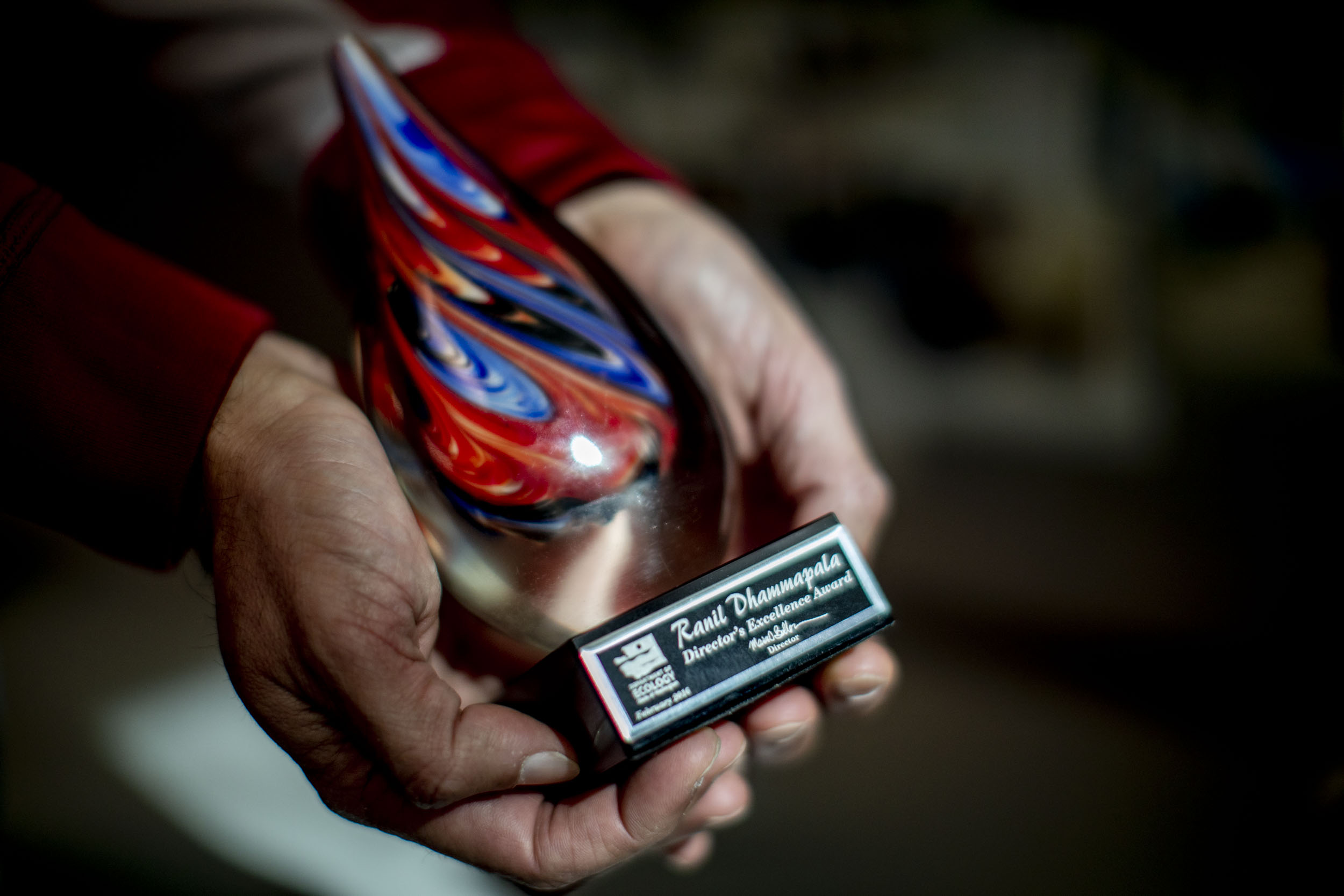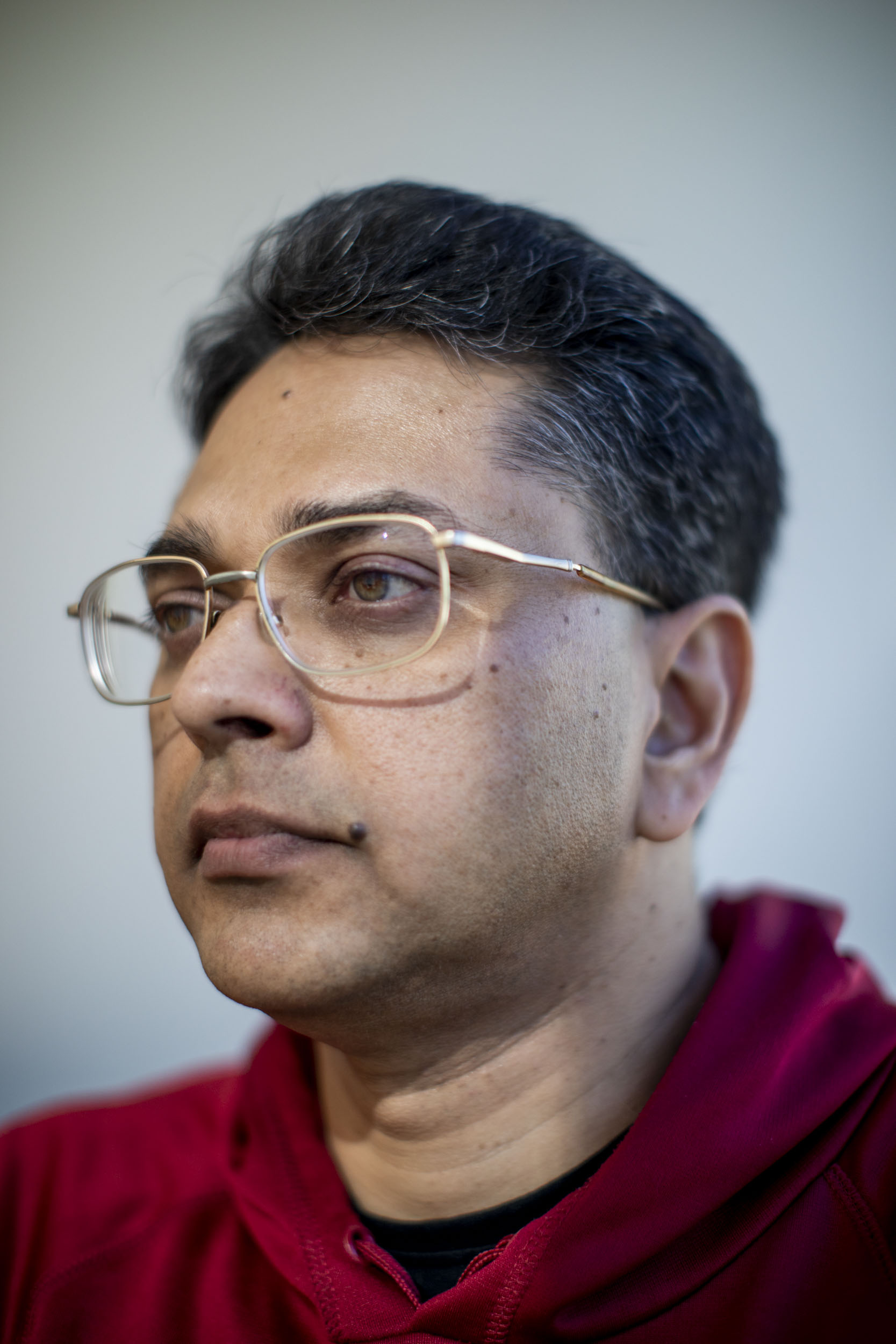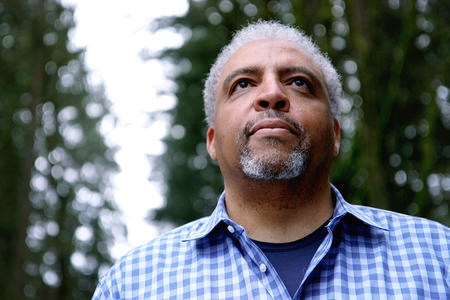This interview has been edited for clarity.
Both my parents are chemists. My mom is still a high school chemistry teacher and my dad passed [away], but he had his own small business where he came up with the chemical formulation to manufacture adhesives and some nail polish remover. So I grew up in a house where science was quite often discussed and debated about and sometimes even fought over.
In Sri Lanka, the environment was probably a low priority. If you saw people burning tires, then, instinctively, everyone’s faces would turn sour. If you saw really nasty-looking industrial effluents being discharged — then people would generally say something. But in terms of regulations that tried to limit it — those have only come about in more recent years.
[As] a teenager in Sri Lanka, I read an article in my church’s youth group newsletter which made the case for being stewards of the earth and being responsible for its care. The article contrasted this calling with a sadly more popular interpretation of Genesis 1:28, which is taken to justify plundering the earth’s resources for personal gain. It is one of the “Aha!” moments I can put my finger on.
I was pretty much set on following a career in science. But air quality in particular came about when I did my bachelor's degree at the University of Zimbabwe. We were supposed to do a research project. I hadn't really done a whole lot of applied chemistry before that, so when a professor asked if I was interested in analyzing some air samples, I thought it might be worth a try, and the rest is history.
Studying air quality had a definite practical application that I could see. It wasn't just mixing chemicals and doing some intellectually stimulating stuff in the lab, even though that's important. I don't think I had done a whole lot of that practical science work up to that point.
I always try to ask myself if my research is of some practical use. Does it help people? Is it going to help us do our job better? Is it going to improve the air quality forecast that we make? Is it going to help us figure out what the sources of pollution are in a more effective way? And then you can subsequently talk about the policies that need to be implemented. But I don't do policy stuff. I'm one of the scientists here. But the policy people rely on the scientists to inform them, basically, of the causes [of problems].

I’m one of the contributors to the Washington Smoke Blog and I think it's fair to say that when wildfire season rolls along, it becomes our lives. Not just for me. I may be one of the contributors on the blog, but there is an army of folks who work here and the other agencies, making sure that the air quality monitors are running, answering all the public questions, making sure that they talk to the firefighters, and there are so many public meetings to attend.
'14 and '15 were bad wildfire smoke years, but '17 and '18 hit the ball out of the park, unfortunately. And when the intensity of the smoke events are stronger, then there's more work, and there have been times when our websites have just not been able to keep up with the number of people requesting information. Everybody wants to know what the air quality is like. Is it safe to go out? Is it safe to practice sports? Should we cancel some sporting events?
When you're used to a relatively clean environment most of the year, then those events become really hard-hitting. Where I'd lived before, year round you generally accept that it's not going to be anywhere near as clean as in Washington. Often [in Zimbabwe or Sri Lanka], you'd get people just burning plain old plastic garbage. That's not uncommon. The background levels are elevated.

Do we expect fires in the summer to happen again? Absolutely. Everyone's planning for it. What is uncertain is the intensity and the frequency. Whether we will have 2019 being as bad as the 2018 or '17 summers — we don't know that. Outside the Department of Ecology, the Department of Health and the local health districts are certainly planning for another all-hands-on-deck summer.
The question is often raised: “Oh, the air is cleaner now than it's been in 50 years. So, you know, you guys, you did a good job. Now go home and find a different profession.” Of course wildfire seasons are the exception, but thankfully those are not all year long. It's a few weeks of really bad air, but overall for the vast majority of the time, air quality is way better than it's been 50 years ago.
What concerns me is that this seems to be true [only] on the surface. If you scratch the surface a little more, you see that as a nation we've focused mainly on six criteria pollutants, gaseous pollutants — aside from fine particle wildfire smoke — like lead, carbon monoxide and ozone. And we’ve put all our efforts into controlling those and, yes, [we’ve] had a good deal of success. But in the process, what we've not been able to do much on is all the synthetic/organic compounds that have been created in all these manufacturing processes, you know? Often these chemicals have been designed specifically to withstand nature's destructive processes. And we have very little health data on the toxicity of those.
Similarly, ultrafine particles are an emerging area of research. Unfortunately, there is no accepted way of measuring them either. It's just research grade measurements at this point. But those are, we think, of extremely high toxicity. In the process of optimizing all our combustion processes to reduce other pollutants like sulfur dioxide and nitrogen oxide and even fine particles, you actually increased the amount of ultrafine particles. But that's not been regulated; we're not keeping tabs on it. So my concern is that we might have shifted some of the air quality problems from one regime to another.
In simple terms, I want to help people breathe cleaner air. But how do you accomplish that? Unfortunately, the solutions are often dictated by local dynamics, what's going on in a particular area. Not all air quality problems are the same. In some cases, it doesn't take a lot of complex scientific investigation to figure out what the problems are and what the solutions ought to be. But in other cases, it does. So, you know, whether it’s ultrafine particle research or the highly specialized synthetic/organic compounds toxicity [being] evaluated during my working career or not, it’s important to figure out the problems that communities face and find scientifically defensible solutions.





